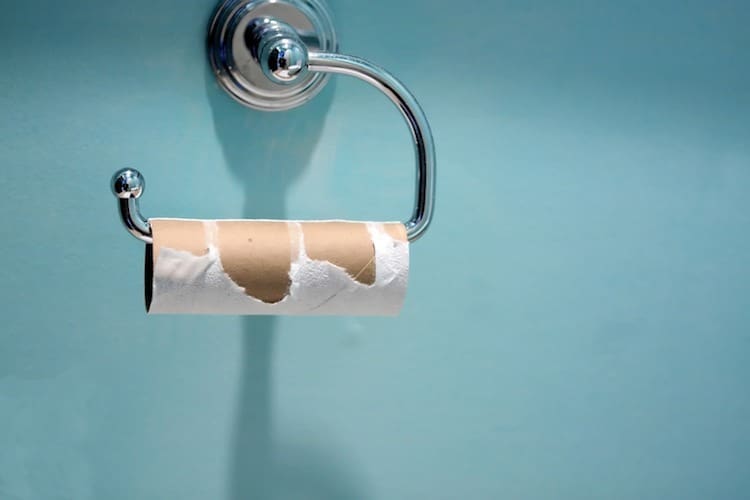- General Information
- See Your Pharmacist or Medical Professional
- Treatment Tips
- Treatment Options
- More Information
General Information
Diarrhoea is when your bowel movements become watery, foul-smelling and the need to go to the toilet is urgent and frequent. Diarrhoea has many causes and can be a sign of more serious conditions, such as inflammatory bowel disorders.
Very young and elderly patients with diarrhoea can rapidly become dehydrated with diarrhoea and require immediate medical attention.
Common causes of diarrhoea include viruses, such as rotavirus in children, or bacteria, such as from traveller’s diarrhoea or food poisoning. Other causes include stress, alcohol, spicy food or changes to your diet. Sometimes intolerances to food or medicines can be the cause.
If diarrhoea is caused by food poisoning, it can start a few hours or more after eating contaminated food, and may last up to three days.
Symptoms of diarrhoea include:
- watery, foul-smelling bowel movements
- stomach cramps, nausea and vomiting
See Your Pharmacist or Medical Professional
If the person with diarrhoea is dehydrated, seek immediate help.
The signs of dehydration are:
- a very dry mouth or tongue
- drowsiness or ‘floppiness’ in children
- the ‘soft spot’ (fontanelle) on the top of a baby’s head is more sunken than usual
- passing little or no urine
- sunken eyes
- loss of skin elasticity; it does not flatten when pinched
- weight loss (5–10%)
- increased thirst
- dark urine
- passing little or no urine
- fewer or no tears when crying (infants)
- headache
- feeling tired, light-headed, irritable
- changed breathing – fast or deep
- cold hands and feet
Also see a health professional if:
- diarrhoea lasts more than 48 hours in adults or 24 hours in children
- the person with diarrhoea is a child aged under five, or is elderly
- your stools are dark and tarry
- your stools are fatty, or pale and greasy, and difficult to flush
- there is blood in the faeces or dark faeces (bowel motions)
- the person has a high fever (over 38.5 degrees C in adults)
- the person has a weakened immune system
- you have a fever or stomach cramps, or feel generally unwell
- you have vomiting, weakness and dizziness
- you have recently travelled overseas, especially to developing countries
- your diarrhoea alternates with constipation, particularly people over the age of 50
- you have started new medicines, such as antibiotics
- you have diarrhoea regularly or at particular times of the day
- you take other medicines;, as diarrhoea may decrease their effectiveness, such as with the contraceptive pill
- you are pregnant or breastfeeding, as some medicines may not be suitable
- you have other medical conditions
- you have allergies to any medicines
Treatment Tips
- do not drink full-sugar soft drinks, fruit juices or sports drinks because the high sugar content in these drinks can make diarrhoea worse
- prevent dehydration by drinking plenty of water or oral rehydration fluids (see Treatment Options below)
- continue to breastfeed and formula feed babies normally; do not dilute formula
- offer oral rehydration solution or boiled and cooled water between feeds (infants)
- eat bland, dry foods containing carbohydrate, such as mashed potatoes, pasta, rice, bread, as soon as you feel you can
- avoid grains, uncooked fruit and vegetables, tea and coffee, fatty or spicy foods for two days
- children and some adults may be unable to tolerate dairy foods, in which case they should be avoided. Milk products may need to be reintroduced into the diet gradually after the diarrhoea has settled (this does not apply to babies)
- diarrhoea can be contagious, so wash your hands before eating or preparing food, and after using the toilet
- lactobacillus-containing yoghurts or supplements may be beneficial in reducing the duration of diarrhoea caused by viruses such as rotavirus
- stay at home when ill
Treatment Options
Oral rehydration fluids: to prevent and treat dehydration
[GENERAL SALE]
e.g. Gastrolyte, HYDRAlyte, Pedialyte
- oral rehydration fluids prevent and treat dehydration by replacing water and electrolytes (salts) lost through diarrhoea
- oral rehydration fluids should be the first choice to prevent and treat dehydration, especially in children and the elderly
- they are available in sachets, effervescent tablets, ice blocks and pre-mixed solutions, which contain a special mixture of electrolytes that water alone cannot replace
- oral rehydration products replace fluids, but do not treat diarrhoea or its cause
- follow instructions on products exactly
- sipping small amounts frequently is better than drinking large amounts
- once made up, the solution should be thrown away after one hour, or 24 hours if refrigerated
- children may not like the taste of oral rehydration products, refrigerating the solution or using the iceblocks may help with this
Anti-diarrhoeal medicines: to reduce bowel movements
[PHARMACY ONLY]
e.g. diphenoxylate + atropine, 8 tablets only (Lomotil); loperamide (Gastro-Stop, Diareze, Imodium, Gastrex)
e.g. loperamide + simethicone (Imodium Advanced, GastroStop Plus)
- these medicines slow the gut to reduce bowel movements and increase fluid absorption; they do not treat the cause or infection
- they should be used with oral rehydration fluids
- diphenoxylate may cause drowsiness, so avoid alcohol when taking
- constipation can be a side effect of these medicines
- they are not recommended for use in children or pregnant women
More Information
Availability of medicines
- GENERAL SALE available through pharmacies and possibly other retail outlets.
- PHARMACY ONLY available for sale through pharmacies only.
- PHARMACIST ONLY may only be sold by a pharmacist.

